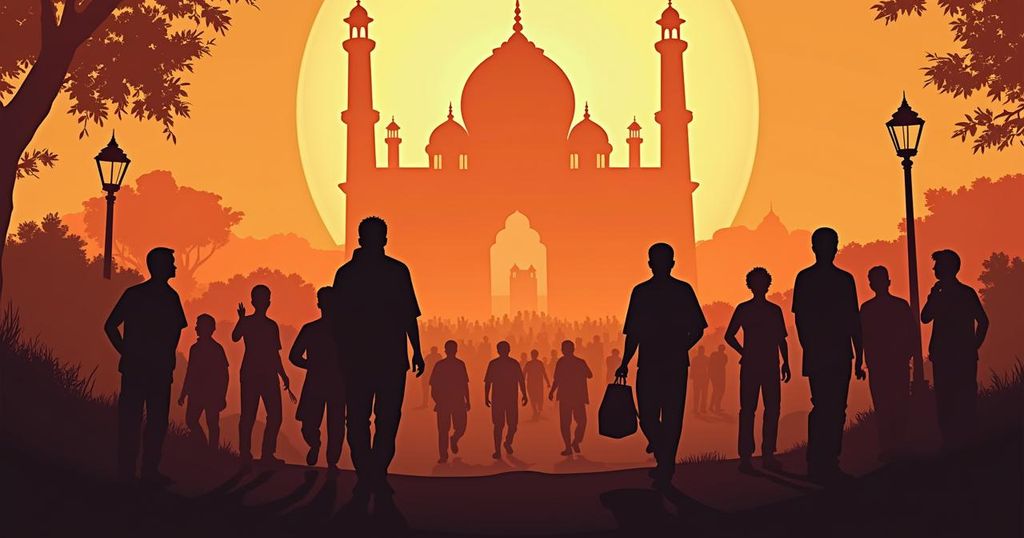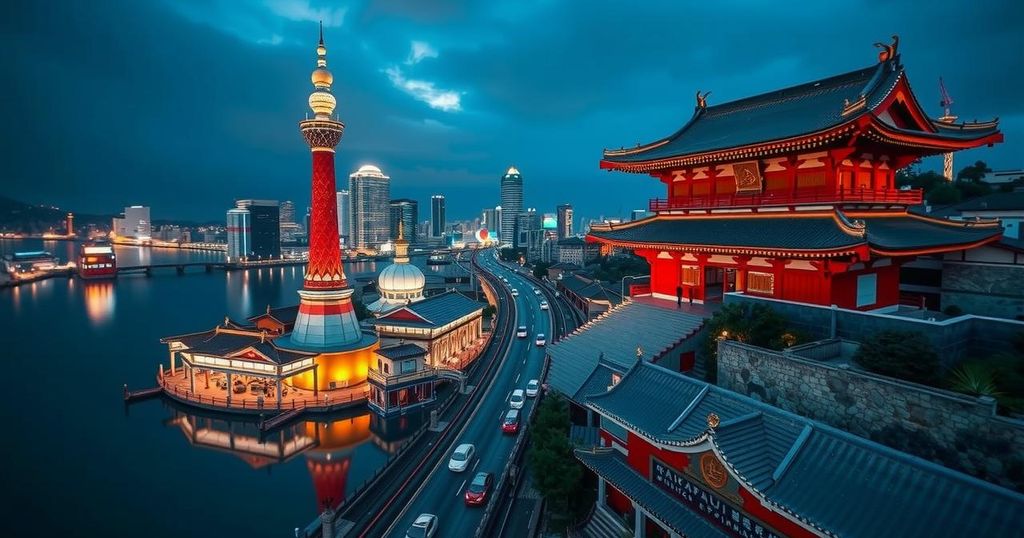Voting Trends Show BJP Leading in Haryana, Trailing in Jammu and Kashmir
Prime Minister Narendra Modi’s BJP is leading in the Haryana elections but is falling behind in Jammu and Kashmir, where a Congress-National Conference alliance is gaining ground. This marks the first state polls since the BJP’s reduced majority in the June general elections. The results could enable the BJP to secure a third consecutive term in Haryana, while the Congress-NC coalition appears set to govern in Kashmir, amidst a backdrop of significant political changes in both regions.
Prime Minister Narendra Modi’s Bharatiya Janata Party (BJP) is currently leading the election results in the northern state of Haryana, aiming for a third consecutive term in government. In contrast, the party is trailing in Indian-administered Jammu and Kashmir, where the Congress-National Conference (NC) coalition appears poised to form the government based on the early vote counts. These elections mark the first state polls in India following the general election, which resulted in a BJP victory with a diminished majority. If the BJP prevails in Haryana, it would contradict the predictions made by exit polls, which had forecasted a strong performance for the Congress party in the region. Both Haryana and Jammu and Kashmir have a total of 90 assembly seats, and the party or coalition that secures more than 45 seats will be eligible to govern. Early reports indicate that the Congress-NC coalition is currently leading with approximately 51 seats in Jammu and Kashmir, while the BJP has secured about 26 seats, primarily benefiting from voter support in the Hindu-majority Jammu area. As the vote count progresses, these figures may change. This election cycle is notable as it is the first in Jammu and Kashmir since the 2019 revocation of the region’s autonomy by the federal government, which restructured it into a centrally governed territory. The elections were conducted in three phases, with significant promises from both the BJP and Congress leaders, notably concerning the return to full statehood. Voters have expressed optimism that this election provides a chance to voice their concerns, especially after years without local representation; however, skepticism remains regarding the effectiveness of an elected government, given that major decisions will require approval from the centrally appointed lieutenant governor. In Haryana, the BJP has faced challenges associated with anti-incumbency after a decade in power. The Congress party’s campaign has gained traction due to discontent over previous controversial federal agricultural laws, which were subsequently revoked, and the contentious Agniveer army recruitment scheme. Despite this, should the current trends continue, the BJP is on track to achieve a third consecutive victory in Haryana, reinforcing its position within the Indian political landscape.
The elections in Haryana and Jammu and Kashmir are significant, representing the first state assembly elections since the general elections in June 2023, which returned the BJP to power but with a reduced majority. The political dynamics within these regions differ markedly; while Haryana has historically leaned toward the BJP, Jammu and Kashmir has a more complex political landscape due to its recent revocation of autonomy and enduring militancy issues. The voter sentiment in Jammu and Kashmir reflects a desire for local governance after an extended period of federal rule, while in Haryana, issues such as agricultural reforms and employment opportunities have shaped the electoral discourse. Both elections are critical not only for the immediate political outcome but also for their implications on regional stability and governance practices in India.
In conclusion, the ongoing vote counting for the Haryana and Jammu and Kashmir elections indicates a mixed political landscape for Prime Minister Narendra Modi’s BJP. While the party appears to be on the verge of another term in Haryana, it is faltering in Jammu and Kashmir, where the Congress-NC coalition leads. The outcomes of these elections will have significant implications for the governing dynamics in these states, further reflective of the broader political sentiments influencing Indian electoral politics.
Original Source: www.bbc.com








Post Comment